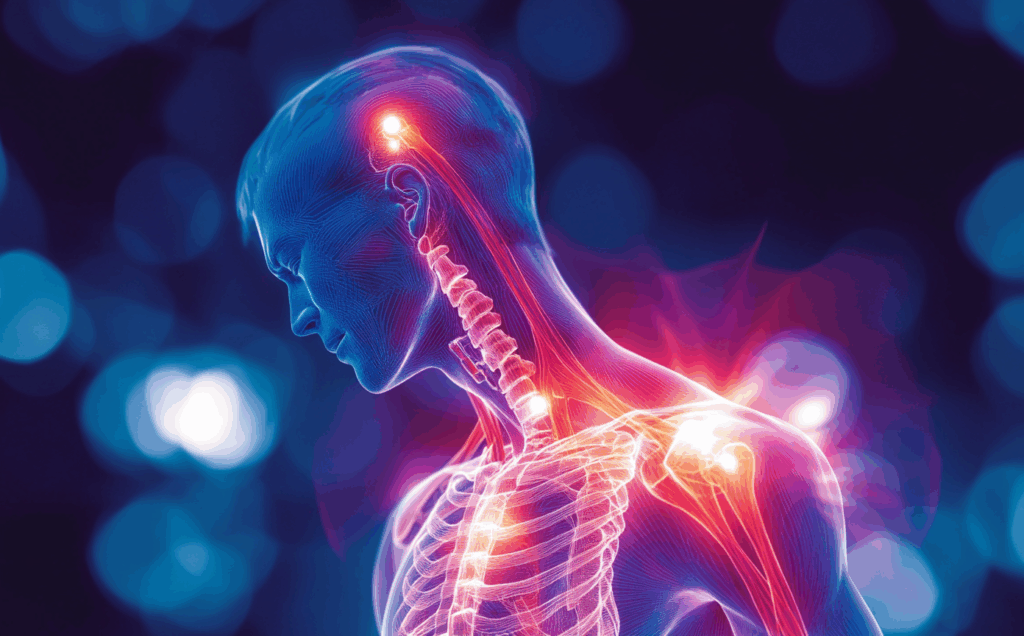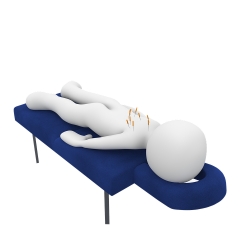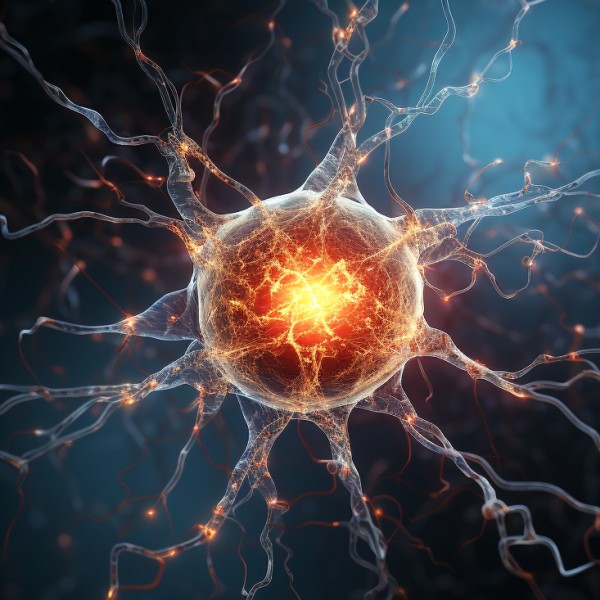
Do you suffer from strange numbness or tingling in your feet or hands? Or a sudden inability to control your fingers, hands or feet?
The first option is to visit a licensed medical professional, who will give you a course of action. If the diagnosis is peripheral neuropathy, several treatment options are available. Besides the FDA-approved medications, many people buy over-the-counter neuropathy supplements which claim to help fight various nerve problems. The evidence supporting their alleged benefits is not always reliable, so use them cautiously after consulting with a recognized medical professional.
25 Supplements as treatments for neuropathy

That said, numerous online sites promote some of the following supplements to manage neuropathic problems.
Acupuncture, which involves inserting thin needles into various points on your body, may reduce peripheral neuropathy symptoms for some patients. Generally, multiple sessions are necessary before any noticeable improvement. Generally considered safe when performed by a certified practitioner using sterile needles.
Acetyl-L-carnitine may help improve peripheral neuropathy in people who have undergone chemotherapy and in people with diabetes. Reported side effects include nausea and vomiting. Recommended dosages vary between 2000/3000 mg/day.
Alpha-lipoic acid has been used as a treatment for peripheral neuropathy in Europe for years. A fat and water soluble antioxidant, ALA can protect nerve cells from further oxidative damage and assist in the repair of damaged nerve cells. Before self-medicating, discuss its use with your doctor because it may affect blood sugar levels. Other side effects could include stomach upset and skin rash. Doses usually vary from 600 mg to 1200 mg per day.
L-arginine improves blood flow, an important step in repairing nerve damage. Normally people start with 250 mg three times a day. Note that patients with a history of herpes should not take this amino acid as it has been implicated in an increase in outbreaks.
Ashwagandha supported the significant regeneration of the axons and dendrites of nerve cells in a scientific study. In addition, Ashwagandha extract supported the reconstruction of synapses, the junctions where nerve cells communicate with other cells. The investigators concluded that Ashwagandha extract helps to reconstruct networks of the nervous system, making it a potential treatment for diseases such as Alzheimer’s.
B vitamins. Taking a balanced B complex supplement may help relieve symptoms. Make sure the B complex taken has levels active ingredients high enough to be effective, since not every B vitamin is equally potent. Note that adequate levels of folate are present in the pill.
Bacopa monnieri interacts with the dopamine and serotonergic systems, but its main mechanism concerns promoting neuron communication. It does this by enhancing the rate at which the nervous system can communicate by increasing the growth of nerve endings, also called dendrites.
Benfotiamine, a fat-soluble, highly absorb-able form of thiamine (vitamin B1), has shown in some lab studies to reduce pain and improve nerve conduction velocity. Benfotiamine works by blocking three of the major biochemical pathways that damage blood vessels and nerves. The recommended dose is 300 mg twice a day in treatment for neuropathy.
Creatine, a study from 2005 concludes “systemic administration of creatine monohydrate has a protective and upgrading effect on the functional properties of denervated muscle, especially in surgically reinnervated subjects.protects damage from concussions.” Unsupervised use of creatine with other medications to treat neuropathy “can harm the kidneys might increase the chance of kidney damage” because of substance overload.
Curcumin has been cited in several research reports for its alleged antioxidant, anti-inflammatory, antiviral, antibacterial, and anticancer properties. However further testing is required to reach definitive conclusions.
Evening primrose oil contains the essential fatty acid gamma linolenic acid (GLA), which has been shown to support optimal nerve function. In one double-blind study carried out in seven medical centers, 480 mg of evening primrose oil taken daily for one year proved beneficial to patients’ nerve health. Other studies have utilized doses up to 6,000 mg per day with good results in treatment for neuropathy.
Fish oil supplements, which have omega-3 fatty acids, may reduce inflammation, improve blood flow and improve nerve damage symptoms in people with diabetes. Check with your doctor before taking fish oil supplements if you’re currently on anti-clotting medications.
Ginkgo improves blood flow to the brain. One study stated, “The popular herb from the maidenhair tree that has shown some promising effects as an neuroprotectant. The most unique components of the extracts are the terpene trilactones, that is, ginkgolides and bilobalide.” Whether oral doses of ginkgo biloba can survive the digestive process to help remains a question mark.
Herbs such as evening primrose oil, may help reduce neuropathic pain in people with diabetes. Some herbs interact with medications, so discuss herbs you’re considering taking with your doctor.
Korean Red Ginseng has some potential to treat neurological conditions, although the evidence supporting that claim is far from conclusive. Traditionally it’s primarily used for energy and mood disorders, along with erectile dysfunction.
Lion’s mane, scientifically known as hericium erinaceus, supplements have been suggested to demonstrate neuroprotective properties and improvements in treatment of anxiety, cognitive function, and depression.
Magnesium supplements have been found by researchers to aid in regrowing damaged nerve cells.
Omega-3s and omega-6s are essential oils needed by the bodies’ nerve cells to repair and maintain their healthy function. Adding these important fats as supplements can help restore the integrity of nerve cells against further damage from stress. Blood tests are used to determine the exact quantities needed, since both omega 3’s and 6’s need to be in ideal balance between the two in patients with diabetic peripheral neuropathy (DNP).
Phosphatidylcholine supplementation improves intestinal health, neuropsychiatric disorders, skin health, fat metabolism, liver function, weight loss. Phosphatidylcholine is believed to work its magic as a building block for a brain chemical called acetylcholine, which is essential for memory and other bodily functions.
Phosphatidylserine is actively involved in the repair and maintenance of each cell’s structure in the body and the nervous system.
Pregnenolone reverses declining neurogenesis, or new nerve growth. Such declines are associated with disorders such as Alzheimer’s disease
Pyrroloquinoline quinone(PQQ) plays a major role on reversing damage to mitochondria, which can lead to cognitive dysfunction, permanent myopathy, ALS like symptoms, or peripheral neuropathy. PQQ is found in many fruits and vegetables and egg yolk. Natto (fermented soybeans) is a particularly rich source as are celery, parsley, papaya and kiwi fruit. While available as a dietary supplement, PQQ may be destroyed when ingested.
Rhodiola Rosea proponents claim it increases energy, stamina, strengthens nervous system and mental capacity. People label it as an “adaptogen,” because it helps the body adapt to and resist physical, chemical, and environmental stress. Scientific studies backing the beneficial claims of rhodiola, which were performed in former Soviet republics should be viewed with caution, since tests performed in the former USSR (or China) have a history of always finding the treatments effective.
Taurine is an amino acid that supports neurological development and helps regulate the level of water and minerals in the blood. Taurine is also thought to have antioxidant properties.
Vinpocetine has been shown to improve oxygen flow to the brain. A recommended dosage starts at 20 mg twice daily with meals, gradually increasing the dose until a noticeable improvement in circulation is observed, particularly in the toes.
Vitamin B12 is crucial for maintaining the health of nerve cells and plays a vital role in the formation of myelin, the protective sheath that surrounds nerves and facilitates the efficient transmission of electrical impulses between nerve cells.
